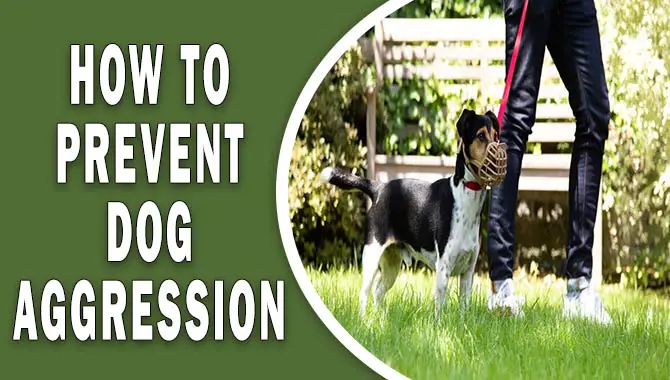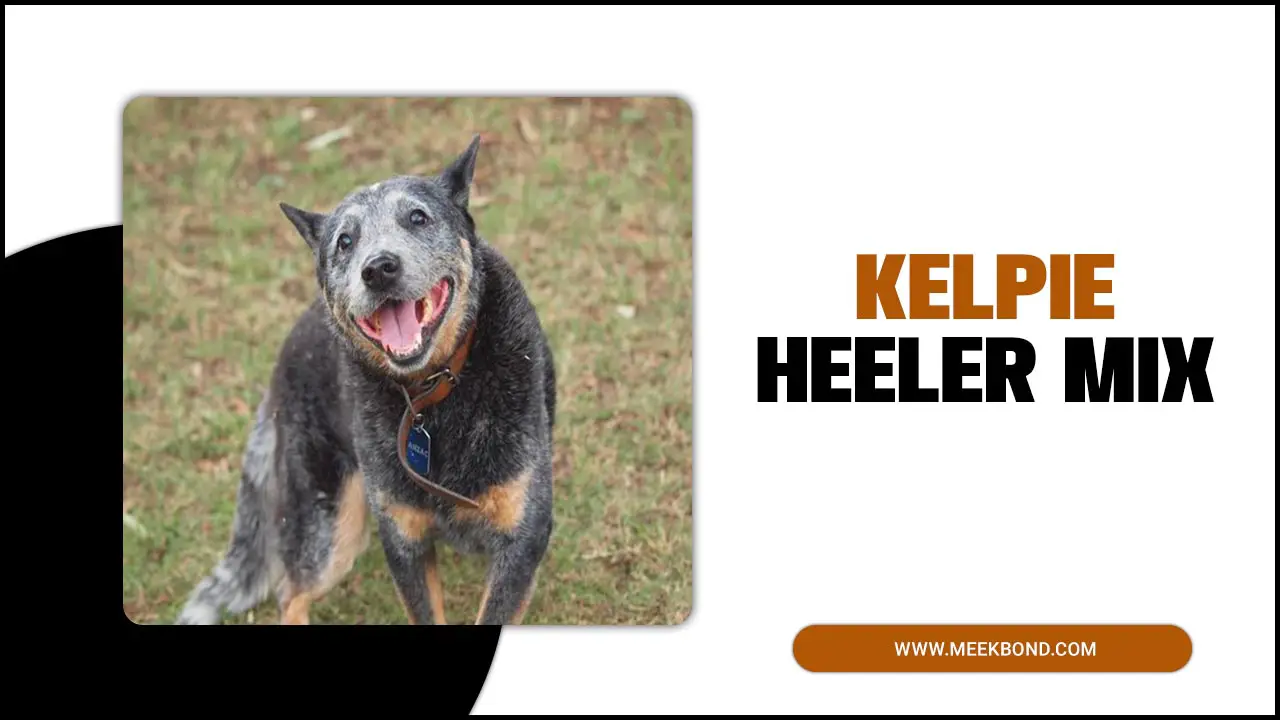The Boston Cattle Dog is a unique and charming breed that is a cross between a Boston Terrier and an Australian Cattle Dog. This mix breed has gained popularity in recent years due to its intelligence, loyalty, and playful nature.
Cattle Dogs are known for their distinctive appearance, which combines the Boston Terrier’s short, sleek coat with the Australian Cattle Dog’s stocky build and speckled markings. While this hybrid breed’s origins are relatively unknown, it is clear that Cattle Dogs possess many desirable traits from both parent breeds.
They are highly trainable and excel at obedience and agility training. They are also fiercely loyal to their families and make excellent companions. Here we will delve deeper into the world of Cattle Dogs, exploring their history, traits, and characteristics.
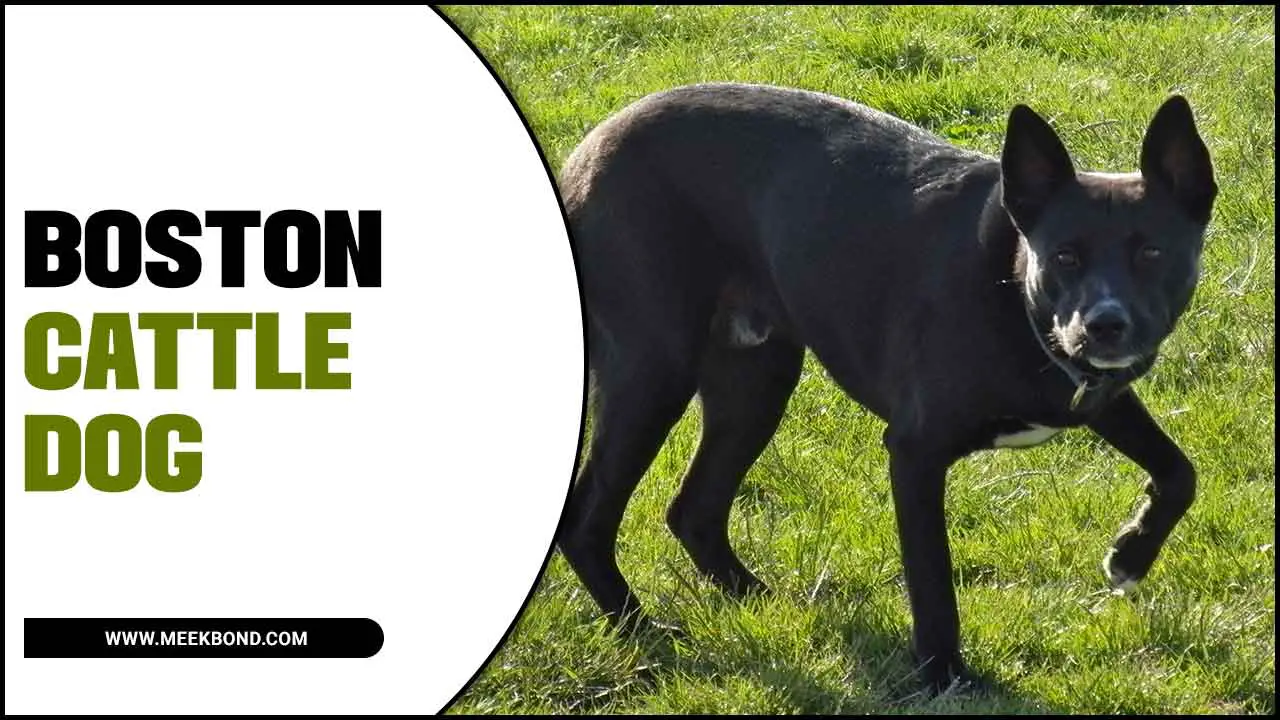
Origin And History Of Cattle Dogs
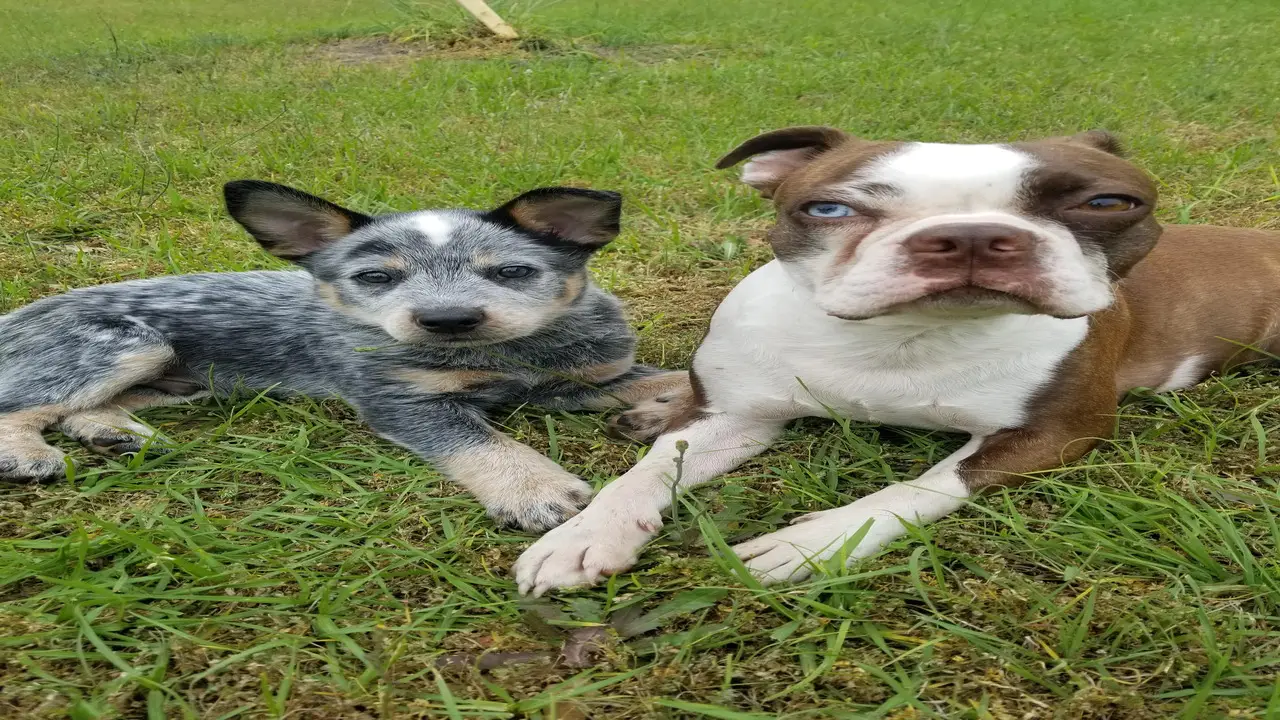
Boston Cattle have a fascinating origin and history. This breed originated in the United States, specifically in Massachusetts. They were created by crossing the Boston Terrier with the Australian Cattle Dog. This mix breed combines the loyalty and affection of the Boston Terrier with the herding and agility skills of the Australian Cattle Dog.
The unique combination of traits from both parent breeds has made Boston Cattle increasingly popular. Various kennel clubs and breed organizations recognize them. This breed’s history showcases the skilful breeding techniques used to create a dog with exceptional qualities.
Characteristics Of The Cattle Dog
The Cattle Dog is a medium-sized breed known for its muscular build and intelligence. With a short coat, regular brushing is necessary to maintain its health. This energetic breed requires ample exercise to stimulate its mind and body.
Cattle Dogs are loyal and make excellent guard dogs, showcasing their protective nature. Their trainability adds to their appeal, making them a great choice for dog training enthusiasts. With their unique combination of traits from the Boston Terrier and Australian Cattle Dog, these dogs will surely bring joy and companionship to any family.
- Height:12-20 inches
- Weight:12-40 pounds
- Lifespan:12-15 years
- Colors: Brindle, seal, black, white
- Suitable for: Active individuals or families, suburban or rural living situations, those interested in a compact watchdog
- Temperament: Intelligent, Lively, Alert, Hardworking, Loyal, Protective, Brave, Determined, Even-tempered, High energy
How To Maintain Boston Cattle Dog
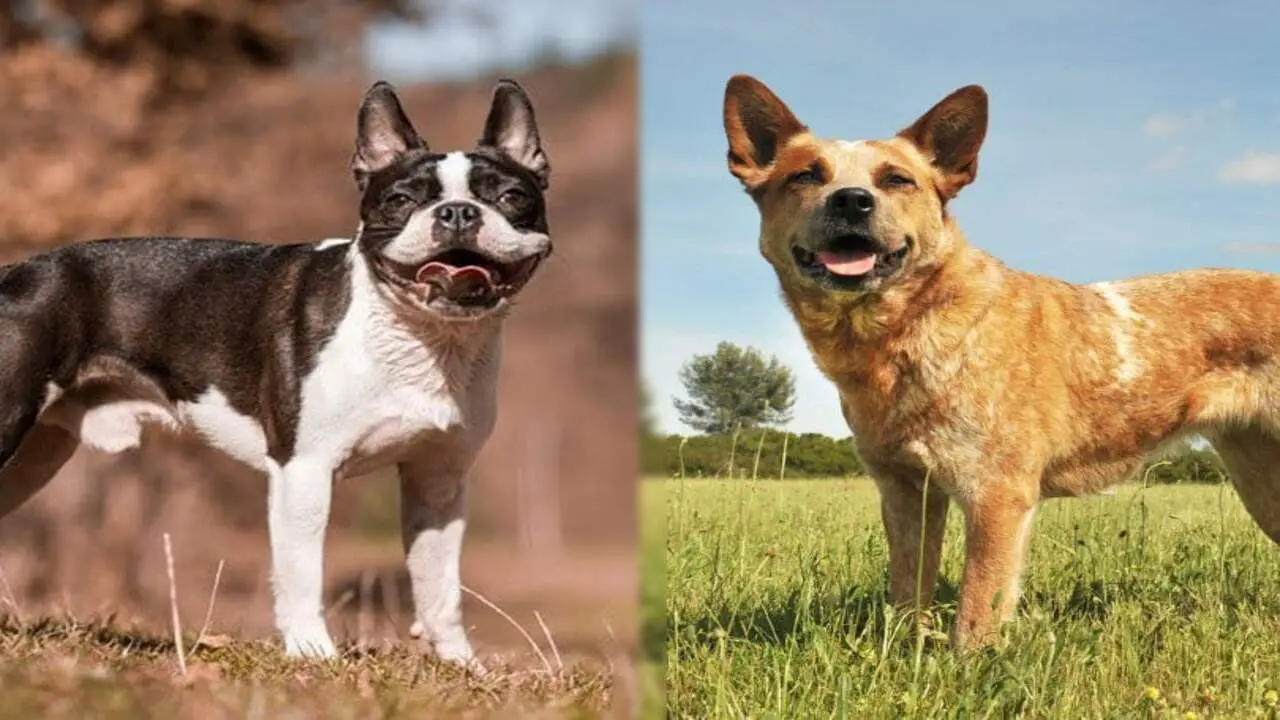
To maintain a Boston Cattle Dog, it is crucial to provide daily exercise and mental stimulation to prevent boredom. Keeping them physically active and mentally challenged contributes to their happiness and health. Proper nutrition and feeding guidelines are essential for their well-being.
Regular grooming, including brushing and bathing, helps keep their coat clean and free from matting. Training methods and techniques specific to this breed also ensure their obedience and good behaviour.
Daily Exercise And Mental Stimulation Requirements
With their high energy levels, Cattle Dogs require daily exercise to prevent behavioural issues. Long walks, jogs, and play sessions are recommended to meet their exercise needs. Mental stimulation is equally important for this intelligent breed.
Activities like puzzle toys and obedience training can help keep their minds sharp. Additionally, providing opportunities for socialization with other dogs and people is beneficial for their overall well-being. Regular exercise and mental stimulation will help prevent destructive behaviours and ensure a happy and healthy Cattle Dog.
Proper Nutrition And Feeding Guidelines For Cattle Dogs
Feeding your Cattle Dog a well-balanced diet that meets their nutritional needs is crucial for their overall health and well-being. It’s important to consult a veterinarian to determine the appropriate amount and type of food for your dog.
Consistency in feeding schedules and portion control is essential to prevent obesity in this breed. Consider providing high-quality dog food for their age, size, and activity level. And don’t forget always to make fresh water available throughout the day. Proper nutrition is key to keeping your Cattle Dog happy and healthy.
Grooming Tips And Recommended Grooming Tools For This Breed

Regular brushing is essential to keep your Cattle Dog’s short coat looking neat to remove loose hair and prevent matting. Use a grooming brush or comb suitable for their coat type. Bathing should be done as needed using a dog-friendly shampoo.
Also, pay attention to their ears and teeth, regularly cleaning them to maintain good hygiene. Don’t forget about nail trimming to prevent overgrowth and discomfort. With these grooming tips and the right tools, you can ensure that your Cattle Dog stays looking and feeling great.
Training Methods And Techniques Specific To Cattle Dogs
Every dog is unique, so it’s important to adapt your training methods based on your dog’s needs and personality. Patience, consistency, and positive reinforcement will go a long way in effectively training your Boston Cattle. When it comes to training a Cattle Dog, several methods and techniques can be particularly effective. Here are some training tips specifically tailored for Cattle Dogs:
- Positive reinforcement: These dogs respond well to positive reinforcement, so reward them with treats, praise, and affection when they exhibit desired behaviours.
- Consistency: Consistency is key when training any dog, especially with Cattle Dogs. Set clear expectations and stick to them. This will help them understand what is expected of them and reduce confusion.
- Socialization: Cattle Dogs are known for their protective nature, so it’s important to socialize them early. Expose them to different people, animals, and environments so they can learn how to interact appropriately.
- Mental stimulation: These dogs are highly intelligent and need mental stimulation to keep them happy and engaged. Provide puzzle toys, interactive games, and training sessions to keep their minds sharp.
- Firm but gentle guidance: Boston Cattle respond best to firm yet gentle guidance. Avoid harsh punishment or yelling, which can lead to fear or aggression.
Health Issues Commonly Seen In Cattle Dogs And How To Prevent Them
All Cattle Dogs will develop these health problems, but it’s always a good idea to be aware of them and work with a reputable breeder who tests for these conditions to help ensure you are getting a healthy puppy.
Regular veterinary check-ups and a balanced diet can also help keep your Cattle Dog healthy. Cattle Dogs are generally healthy dogs, but like all breeds, they can be prone to certain health issues. Some of the common health problems seen in Cattle Dogs include:
- Hip Dysplasia: This is a condition where the hip joint does not develop properly and can cause pain and mobility issues.
- Progressive Retinal Atrophy (PRA): PRA is a group of genetic diseases that cause the degeneration of the retina, leading to vision loss and blindness.
- Deafness: Cattle Dogs can be prone to deafness, especially if they have a lot of white on their heads.
- Allergies: Like many other breeds, Cattle Dogs can develop allergies to certain foods or environmental factors, which can cause skin irritation and discomfort.
- Patellar Luxation: This is a condition where the kneecap slips out of place, causing pain and difficulty walking.
Socialization And Interaction With Other Pets And People

Early socialization is essential for Cattle Dogs to develop good behaviour and adaptability. It is crucial to expose them to various environments, people, and other animals from a young age. Positive interactions and experiences will help them become well-rounded and confident dogs.
Supervising their interactions with other pets and children is important to ensure everyone’s safety. Continued socialization throughout their lives will help maintain their friendly and pleasant nature. Cattle Dogs are known for their alert and friendly demeanour, making them great companions in social settings.
Common Behavioural Issues In This Breed And How To Address Them
The Cattle Dog is a unique breed that combines the intelligence and herding instincts of a cattle dog with the playful and energetic nature of a Boston Terrier. While these dogs can make wonderful companions, they may also have some common behavioural issues that owners should be aware of. Some of these issues include:
- Separation anxiety: The Cattle Dog is known for being highly attached to their owners and may become anxious when left alone for extended periods.
- Aggression towards other dogs: This breed may display aggression towards other dogs, particularly if they have not been properly socialized from a young age.
- Resource guarding: Cattle Dogs may exhibit resource guarding behaviour, meaning they become protective over their food, toys, or other possessions.
- Excessive barking: These dogs are popular to be vocal and may bark excessively if not given proper mental and physical stimulation.
- High energy levels: Cattle Dogs are an active breed that requires plenty of exercise to prevent boredom and destructive behaviour.
Potential owners must understand these behavioural tendencies and provide the necessary training and socialization to ensure a well-rounded and happy dog. Consulting with a professional trainer or behaviourist can also be beneficial in managing any behavioural issues that may arise.
Tips For Keeping Your Boston Dog Entertained And Happy
Providing plenty of exercise and playtime is important to keep your Boston Dog entertained and happy. This will help keep them physically and mentally stimulated. Offering interactive toys and puzzles can also keep them engaged and challenged. Here are some tips for keeping your attle Dog happy and healthy:
- Provide plenty of exercise: Boston Dogs are active and require regular exercise to keep them physically and mentally stimulated. Take them on daily walks, play fetch, or engage in other activities that allow them to burn off energy.
- Provide mental stimulation: In addition to physical exercise, Cattle Dogs also need mental stimulation to prevent boredom. Use puzzle toys, obedience training, or other interactive games to keep their minds sharp.
- Feed a balanced diet: Ensure that your Cattle Dog gets a nutritious diet that meets its needs. Consult with your veterinarian to determine the best type and amount of food for your dog.
- Regular veterinary care: Schedule regular check-ups with your veterinarian to monitor your dog’s health and catch any potential issues early on. Vaccinations, parasite prevention, and dental care are important aspects of keeping your Boston Dog healthy.
- Socialization: Boston Dogs can be wary of strangers and may exhibit territorial behaviour if not properly socialized. Introduce them to new people, animals, and environments from a young age to help them become well-rounded and friendly dogs.
- Train with positive reinforcement: Use treats, praise, and rewards when training your Boston Dog. This will help establish a strong bond between you and ensure they respond well to commands.
- Provide a safe environment: Ensure your home and yard are secure to prevent escapes or accidents. Boston Dogs are intelligent dogs who tend to wander if not properly contained.
A Close Look At Boston Dog’s Temperament
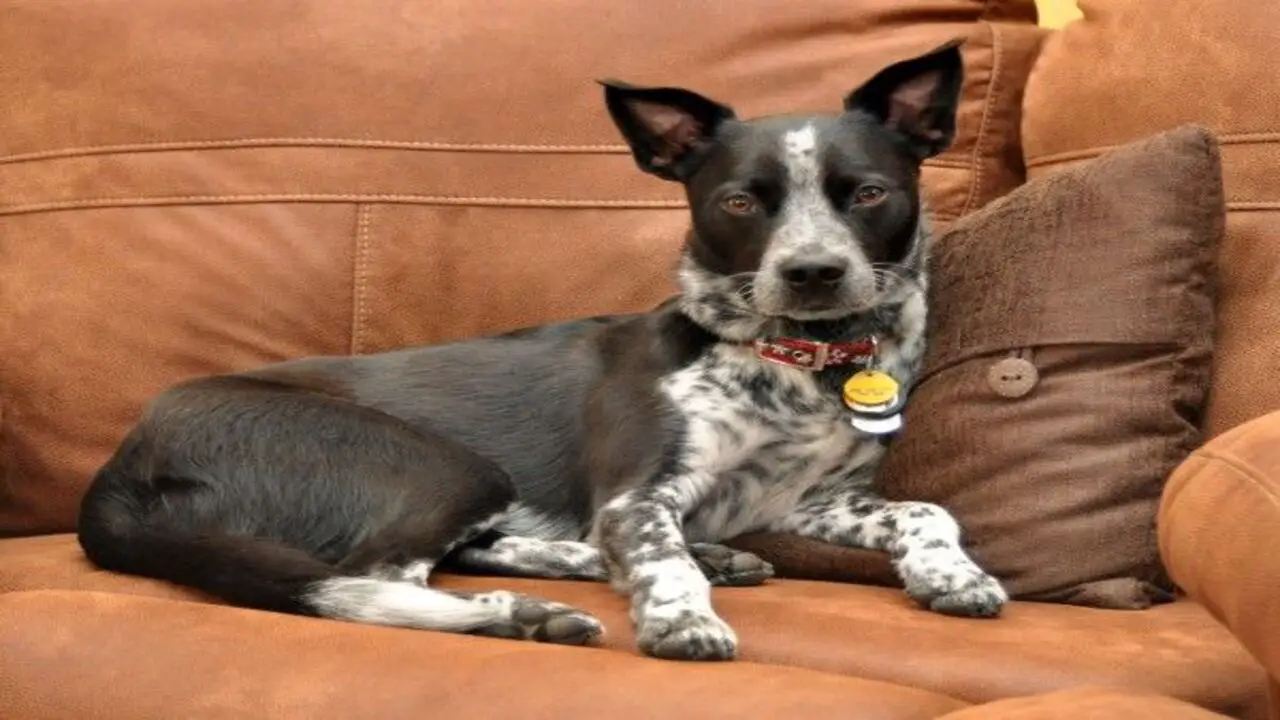
Boston Dogs are highly energetic and require regular exercise to maintain their physical and mental well-being. They possess high intelligence, making them easily trainable, although their independent nature can sometimes lead to stubbornness.
In terms of temperament, these dogs are known for their loyalty and protectiveness towards their family members. However, early socialization is crucial to prevent aggression towards other animals or strangers. Through proper training and regular exercise, their abundant energy can be channelled into positive activities, ensuring a well-balanced and contented Boston Dog.
Conclusion
The Boston Cattle Dog is a unique and fascinating terrier mix breed that requires special care and attention. Giving them daily exercise and mental stimulation is important to keep them happy and healthy. Proper nutrition and grooming are also crucial for their well-being.
Training is essential to ensure they are well-behaved and obedient. Socialization is key to helping them interact with other pets and people. Awareness of common health issues and preventive measures can prolong their lifespan.
You can create a harmonious relationship with your Cattle Dog by understanding their temperament and addressing any behavioural issues. Remember, keeping them entertained and loved is the key to your furry friend’s happy and fulfilled life.
Frequently Asked Questions
What Is A Boston-Cattle Dog?
A Boston dog is a hybrid breed resulting from the mix of a Boston Terrier and a Cattle dog. Combining the stocky build of a Boston terrier with the herding instincts of a cattle dog, these energetic and affectionate dogs make excellent companions for active individuals or families.
Are Boston Terriers Good Dogs?
Boston Terriers are known for their friendly and affectionate nature, making them great companions for families with children or seniors. With their adaptable and easygoing temperament, Boston Terriers are low-maintenance dogs that require minimal grooming and exercise. However, they may still benefit from training to overcome any behavioural issues.
What Breed Mix Is A Boston Terrier?
Boston Terriers are a mixed breed of English Bulldogs and English White Terriers. Originally bred for fighting, they became popular as companion dogs. Known for their friendly nature and distinctive tuxedo-like markings, Boston Terriers are beloved for their affectionate personalities.
How Much Exercise Does A Boston Dog Need?
Boston Dogs are a high-energy breed, requiring at least 30-60 minutes of daily exercise. Engage them in activities like running, hiking, and playing fetch to keep them active and prevent behavioural issues.
What Are Some Common Health Issues For Cattle Dogs?
Cattle Dogs, a terrier mix breed, may be prone to certain health issues. These include hip dysplasia, deafness, and eye problems. Regular vet check-ups and proper care can help prevent or manage these issues. Choose a reputable breeder for genetic health.

Aquarium passion is all about connecting with the aquatic life and providing education to the public on the importance of these creatures. We showcase a wide variety of marine life through our exhibits as well as working with schools to provide unique learning opportunities for students of all ages.

